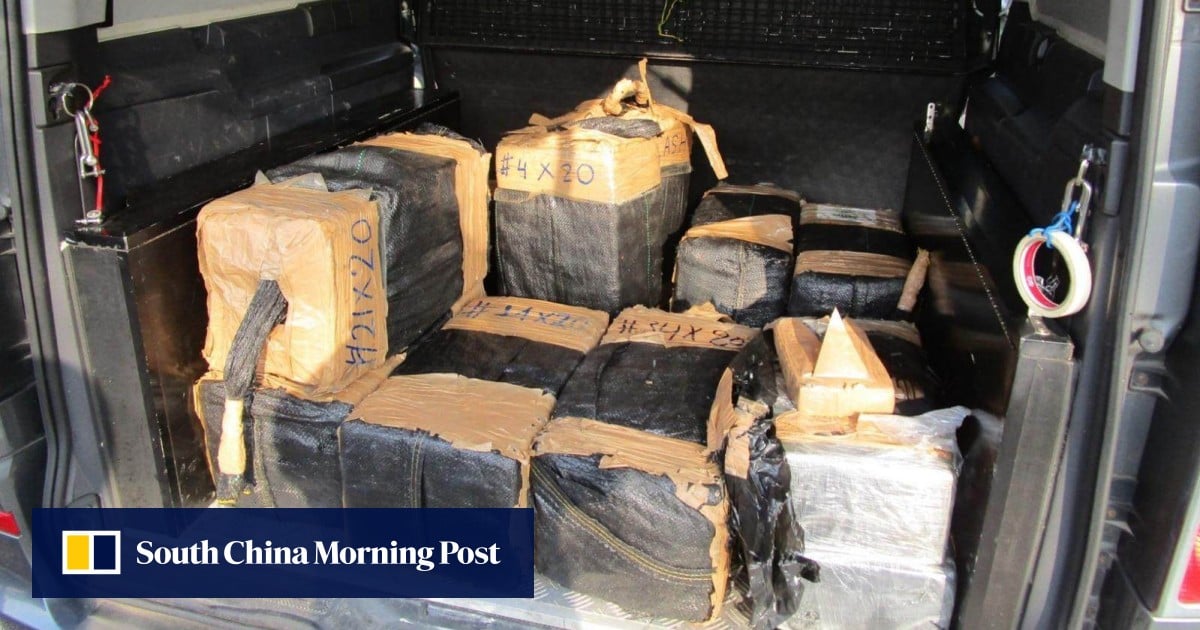Four members of the “Hong Kong 47” group of pro-democracy campaigners and activists jailed on contentious national security convictions have been freed.
Claudia Mo, Kwok Ka-ki, Jeremy Tam and Gary Fan are the first of the group to be released from jail, after serving sentences of more than four years. The group – tried together in Hong Kong’s largest ever national security trial – were sentenced in November. However most of them, including the four released on Tuesday, had already spent several years detained after courts denied bail.
The Hong Kong 47 are among a group of more than 50 pro-democracy politicians, activists, community workers and campaigners who were arrested in mass dawn raids in early 2021. The 47 were accused of breaching the 2020 national security by holding unofficial primaries before Hong Kong’s scheduled elections.
The group includes some of the most well-known figures of the resistance to the Beijing-led crackdown on the pro-democracy movement in the wake of the 2019 protests. Some, like accused organiser Benny Tai and activist Joshua Wong, had been jailed before on activism charges. For many, including Mo it was their first offence.
The four released on Tuesday had been given the shortest sentences, reduced for their guilty pleas but still more than four years. Their time held in pre-trial detention was taken into account.
Of the 47, 31 pleaded guilty, and two were acquitted at trial. The 14 who were convicted after pleading not guilty were given harsher sentences.
The four had been held across three different prisons – Mo at the Lo Wu Correctional Institution, and former legislator Fan at Shek Pik prison. Tam and Kwok, both former senior members of the Civic Party, had been held at Stanley Prison.
Local media reported seeing vehicles believed to be carrying the individuals leaving the various prisons in the early hours of Tuesday, adding that police had set up physical blocks to keep press at a distance and prevent them from following some cars.
Fan, speaking to the press when he arrived at his home early on Tuesday, said: “I will go back home and reunite with family. Thank you HongKongers”.
Philip Bowring, Mo’s husband, said she was calm on her return home and needed time to rest, local media reported.
Mo, 68, is founder of the Civic Party, and was an outspoken democratic legislator, until she and the entire democratic bloc quit in solidarity with colleagues over the disqualification of colleagues. She was denied bail in part because of WhatsApp conversations she’d had with foreign media.
In a message on Facebook soon after she was charged, Mo told supporters “I may be physically feeble, but I’m mentally sturdy … No worries. We all love Hong Kong yah.”
More than 40 members of the group are still in jail, serving sentences of up to 10 years. Tai, a legal scholar accused of being the “mastermind” behind the group’s “subversion”, was given the longest sentence, but had faced up to life in prison.
The primaries were held in 2020, just days after the national security law (NSL) came into force. The sweeping piece of legislation, imposed by the Chinese government to criminalise acts of dissent, sedition, and foreign collusion, has been widely criticised as a tool of Beijing and Hong Kong authorities to crush political opposition.
Its terms were and remain considered vaguely defined. At the time of the primaries Hong Kong minister Erick Tsang had warned that they could violate the law, but the organisers went ahead. Unofficial primaries had been held in the city before, including by pro-establishment parties.
The group aimed to win a majority in Hong Kong’s Legislative Council, or LegCo, and then use it to block bills and force the dissolution of LegCo and the eventual resignation of the chief executive. The three government-selected national security judges overseeing the case found this to be an act of subversion.
The Hong Kong and central Chinese governments have rejected international criticism of the national security law and related prosecutions, saying it was necessary to restore order after the protests which drew millions to the city streets, and devolved into violent clashes. Thousands of protesters were arrested, with many still waiting to go through the court system five years later. Police were accused of widespread acts of brutality against protesters and journalists, but the force was cleared of wrongdoing by a controversial inquiry process which found its actions to be justified.
Reuters contributed to this report


